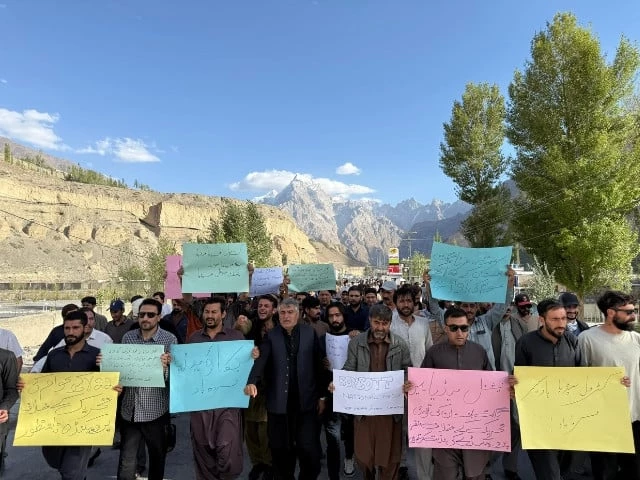Traders call off 68-day sit-in at Pak-China border
The sit-in had paralysed cross-border commerce and passenger movement since July

Trade and tourism activities between Pakistan and China resumed on Saturday after traders ended their 68-day protest sit-in at the Pak-China border, following successful negotiations with federal representatives.
The sit-in, which had paralysed cross-border commerce and passenger movement since July, was jointly organised by the Pak-China Trades Action Committee and the Gilgit-Baltistan Supreme Council.
Speaking to reporters, Chambers of Commerce and Industries President (G-B chapter) Ishfaq Ahmed expressed satisfaction with the outcome, saying that it was a historic day as the government accepted their demands. "It's a big achievement, and we must acknowledge it," he added.
Trader leader Rehan Shah said more than 200 shipping containers stuck at the Sost Dry Port for nearly two months would be cleared within two days. The agreement also includes issuance of a statutory regulatory order (SRO) within a month to formalise tax exemptions, he added. "If the SRO is delayed or our demands are ignored, traders and the Supreme Council will reconvene to decide the next course of action."
The dispute had emerged over the imposition of federal taxes in G-B, which lacks constitutional representation in Pakistan's parliament. Traders argued that such taxation was unlawful. The sit-in had brought commercial traffic on the Karakoram Highway to a standstill, stranding hundreds of passengers and disrupting bilateral trade worth millions of dollars.
Under the agreement, G-B has been exempted from certain income tax, sales tax, and central excise duty in light of its constitutional status.
The protest, one of the longest in G-B's recent history, has highlighted the region's fragile legal and economic position, as well as Islamabad's delicate balancing act between local demands and international commitments with Beijing.



















COMMENTS
Comments are moderated and generally will be posted if they are on-topic and not abusive.
For more information, please see our Comments FAQ